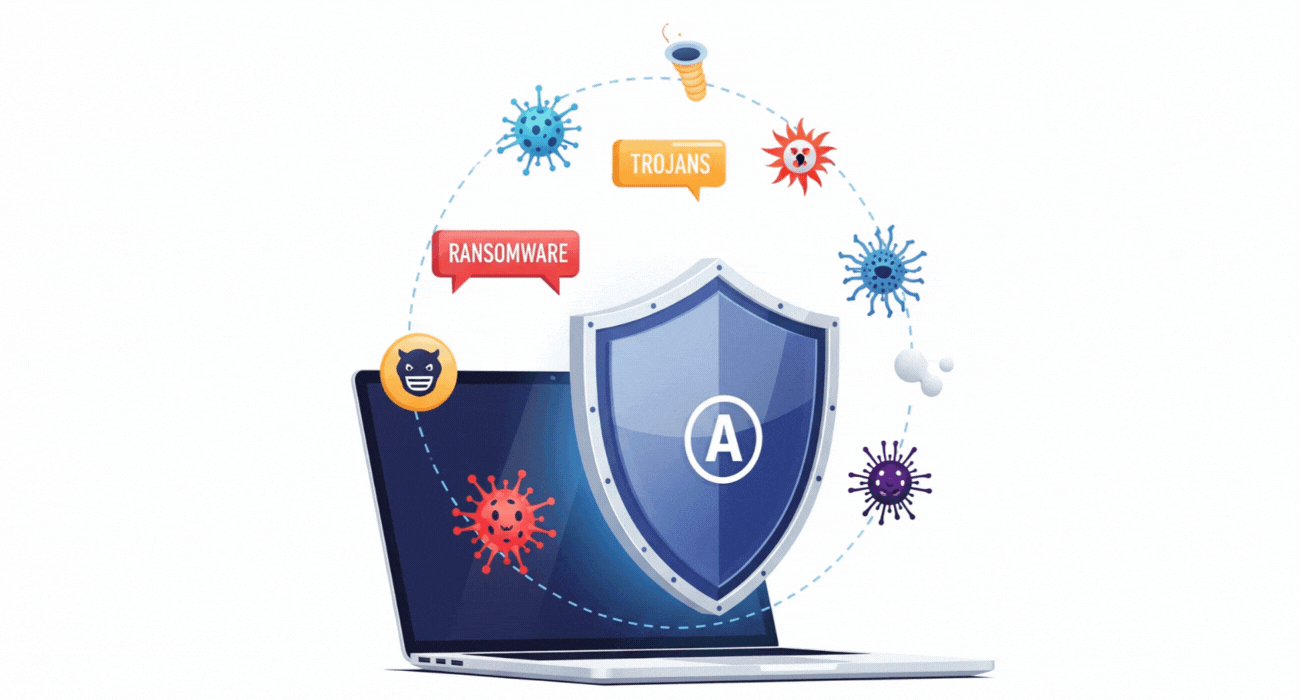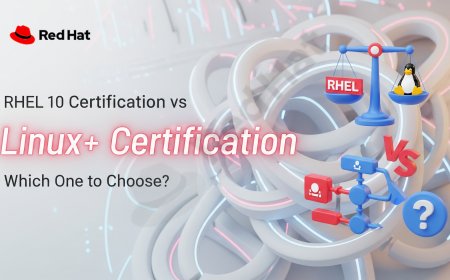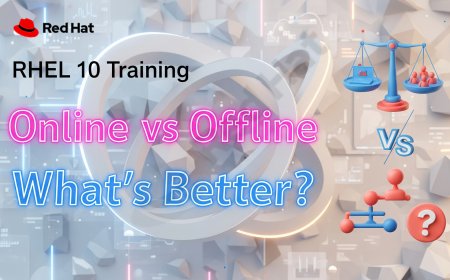What is the Role of Antivirus Software in Today’s Threat Landscape
What If a Silent Invader Was Lurking Inside Your Device? You’re checking your messages, scrolling through your favorite shopping site, or transferring money with a tap—completely unaware that someone, somewhere, might be trying to break into your digital life. Behind the sleek screens and fast apps lies a darker reality: viruses, spyware, ransomware, and countless unseen threats. Now imagine losing access to your personal photos, your saved passwords, or even your entire bank account—just because one harmful file slipped through.That’s where antivirus software becomes your first line of defense. More than just a program, it’s a digital guardian that constantly watches over your system, scanning, detecting, and eliminating threats before they can do harm. But with cybercriminals becoming smarter and more sophisticated, how well are you really protected? This blog unpacks the vital role of antivirus software, how it works under the hood, and why it remains one of the most trusted tools in your cybersecurity toolkit.

Table of Contents
- What Is Antivirus Software?
- Understanding Today’s Threat Landscape
- How Antivirus Software Protects You
- Key Features of Modern Antivirus Software
- Limitations of Antivirus Software
- How to Choose the Right Antivirus Software
- The Future of Antivirus Software
- Conclusion
- Frequently Asked Questions (FAQs)
What Is Antivirus Software?
Antivirus software is a program designed to detect, prevent, and remove malicious software (malware) from your devices. Think of it as a security guard that patrols your computer, smartphone, or tablet, looking for anything suspicious. Malware includes viruses, worms, ransomware, spyware, and other harmful programs that can steal your data, slow down your device, or even lock you out of your own files.
In the early days, antivirus programs focused mainly on viruses—self-replicating programs that spread from one device to another. Today, antivirus software has evolved to tackle a wide range of threats, offering real-time protection, scanning capabilities, and tools to safeguard your online activities.
Understanding Today’s Threat Landscape
The internet is a vast and wonderful place, but it’s also a playground for cybercriminals. In 2025, the threat landscape is more complex than ever. Here are some of the most common threats you might encounter:
- Ransomware: Malware that encrypts your files and demands payment to unlock them.
- Phishing Attacks: Fake emails or websites that trick you into sharing personal information, like passwords or credit card details.
- Spyware: Software that secretly monitors your activities and steals sensitive data.
- Adware: Unwanted ads that pop up on your screen, often bundled with malicious code.
- Zero-Day Exploits: Attacks that target software vulnerabilities before developers can fix them.
With millions of new malware variants created daily, the stakes are high. Cybercriminals are also using artificial intelligence (AI) to craft sophisticated attacks, making it harder for traditional defenses to keep up.
How Antivirus Software Protects You
Antivirus software works like a detective, constantly searching for clues of malicious activity. Here’s how it keeps your devices safe:
- Scanning: Antivirus programs scan your files and programs, comparing them to a database of known malware signatures.
- Real-Time Protection: They monitor your device in real-time, blocking threats before they can cause harm.
- Quarantine: Suspicious files are isolated to prevent them from spreading.
- Removal: Malware is safely deleted or neutralized.
- Updates: Regular updates ensure the software can recognize the latest threats.
Modern antivirus tools also use advanced techniques like behavior analysis and machine learning to detect unknown threats, making them more effective against new and evolving malware.
Key Features of Modern Antivirus Software
Today’s antivirus programs are packed with features to provide comprehensive protection. Here’s a breakdown of some essential features and their benefits:
| Feature | Description | Benefit |
|---|---|---|
| Real-Time Threat Detection | Monitors your device continuously for suspicious activity. | Stops threats before they cause damage. |
| Firewall | Blocks unauthorized access to your device. | Protects against hackers and network attacks. |
| Phishing Protection | Identifies and blocks fake websites and emails. | Safeguards your personal information. |
| Parental Controls | Limits access to inappropriate content. | Keeps kids safe online. |
| VPN (Virtual Private Network) | Encrypts your internet connection. | Ensures privacy on public Wi-Fi. |
These features make antivirus software a versatile tool, not just for fighting malware but also for enhancing overall online safety.
Limitations of Antivirus Software
While antivirus software is essential, it’s not a silver bullet. Here are some limitations to keep in mind:
- Not 100% Foolproof: No antivirus can catch every threat, especially zero-day attacks.
- User Error: Clicking on malicious links or downloading unsafe files can bypass antivirus protection.
- Performance Impact: Some programs may slow down your device, especially during scans.
- Subscription Costs: Premium features often require a paid subscription.
To maximize protection, combine antivirus software with safe browsing habits, regular software updates, and strong passwords.
How to Choose the Right Antivirus Software
With so many options available, picking the right antivirus can feel overwhelming. Here are some tips to help you choose:
- Check Compatibility: Ensure the software works with your device’s operating system (Windows, macOS, Android, etc.).
- Look for Essential Features: Prioritize real-time protection, regular updates, and a user-friendly interface.
- Read Reviews: Independent reviews from trusted sources can help you gauge performance and reliability.
- Consider Your Needs: If you use public Wi-Fi often, choose a program with a built-in VPN.
- Try Before You Buy: Many antivirus programs offer free trials or basic versions.
Popular antivirus brands in 2025 include Norton, Bitdefender, Kaspersky, and McAfee, each offering a range of features to suit different needs.
The Future of Antivirus Software
As cyber threats evolve, so does antivirus software. In 2025, we’re seeing exciting advancements:
- AI-Powered Detection: Machine learning helps antivirus programs identify new threats faster.
- Cloud-Based Protection: Cloud technology allows for quicker updates and less strain on your device.
- Integration with IoT: As smart home devices become common, antivirus software is expanding to protect them.
- Behavioral Analysis: Future antivirus tools will focus more on how programs behave, not just their signatures.
These innovations ensure antivirus software remains relevant, even as cybercriminals find new ways to attack.
Conclusion
Antivirus software is a vital tool in today’s digital world, acting as your first line of defense against an ever-changing array of cyber threats. From ransomware to phishing scams, these programs work tirelessly to keep your devices and data safe. While they’re not perfect, their advanced features—like real-time protection, firewalls, and VPNs—make them indispensable. By choosing the right antivirus and pairing it with smart online habits, you can navigate the internet with confidence. As technology evolves, so will antivirus software, ensuring it remains a key player in the fight against cybercrime.
Frequently Asked Questions (FAQs)
What is antivirus software?
Antivirus software is a program that detects, prevents, and removes malicious software like viruses, ransomware, and spyware from your devices.
Do I need antivirus software in 2025?
Yes, with the rise of sophisticated cyber threats, antivirus software is essential for protecting your devices and data.
Can antivirus software protect against all threats?
No, while antivirus software is highly effective, it can’t catch every threat, especially new or unknown ones.
How often should I update my antivirus software?
Regular updates are crucial, ideally daily, to ensure protection against the latest threats.
Is free antivirus software good enough?
Free antivirus programs offer basic protection but often lack advanced features like VPNs or parental controls.
Can antivirus software slow down my computer?
Some antivirus programs may impact performance, especially during scans, but modern software is designed to minimize this.
What’s the difference between antivirus and anti-malware?
Antivirus focuses on viruses, while anti-malware covers a broader range of threats like spyware and ransomware.
Do Macs need antivirus software?
Yes, while Macs are less prone to viruses, they’re still vulnerable to malware and phishing attacks.
Can antivirus software protect my smartphone?
Yes, many antivirus programs offer mobile apps to protect smartphones from malware and phishing.
What is a zero-day exploit?
A zero-day exploit is an attack that targets a software vulnerability before it’s patched by developers.
Does antivirus software protect against phishing?
Many modern antivirus programs include phishing protection to block fake websites and emails.
Can I use two antivirus programs at once?
No, running multiple antivirus programs can cause conflicts and reduce effectiveness.
What is a VPN, and why is it included in some antivirus software?
A VPN encrypts your internet connection for privacy, often included to enhance online security.
How do I know if my antivirus is working?
Regular scans, real-time alerts, and up-to-date status indicators show your antivirus is active.
Can antivirus software remove existing malware?
Yes, most antivirus programs can quarantine and remove malware already on your device.
Is cloud-based antivirus better than traditional antivirus?
Cloud-based antivirus offers faster updates and less device strain but requires a stable internet connection.
What should I do if my antivirus detects a threat?
Follow the software’s prompts to quarantine or delete the threat and run a full system scan.
Do I need antivirus if I don’t download files?
Yes, threats like phishing or drive-by downloads can infect your device without downloading files.
How much does antivirus software cost?
Costs vary, with free versions available and premium plans typically ranging from $20 to $100 per year.
Can antivirus software protect my smart home devices?
Some antivirus programs are starting to offer protection for IoT devices, but coverage is still limited.
What's Your Reaction?
 Like
0
Like
0
 Dislike
0
Dislike
0
 Love
0
Love
0
 Funny
0
Funny
0
 Angry
0
Angry
0
 Sad
0
Sad
0
 Wow
0
Wow
0














